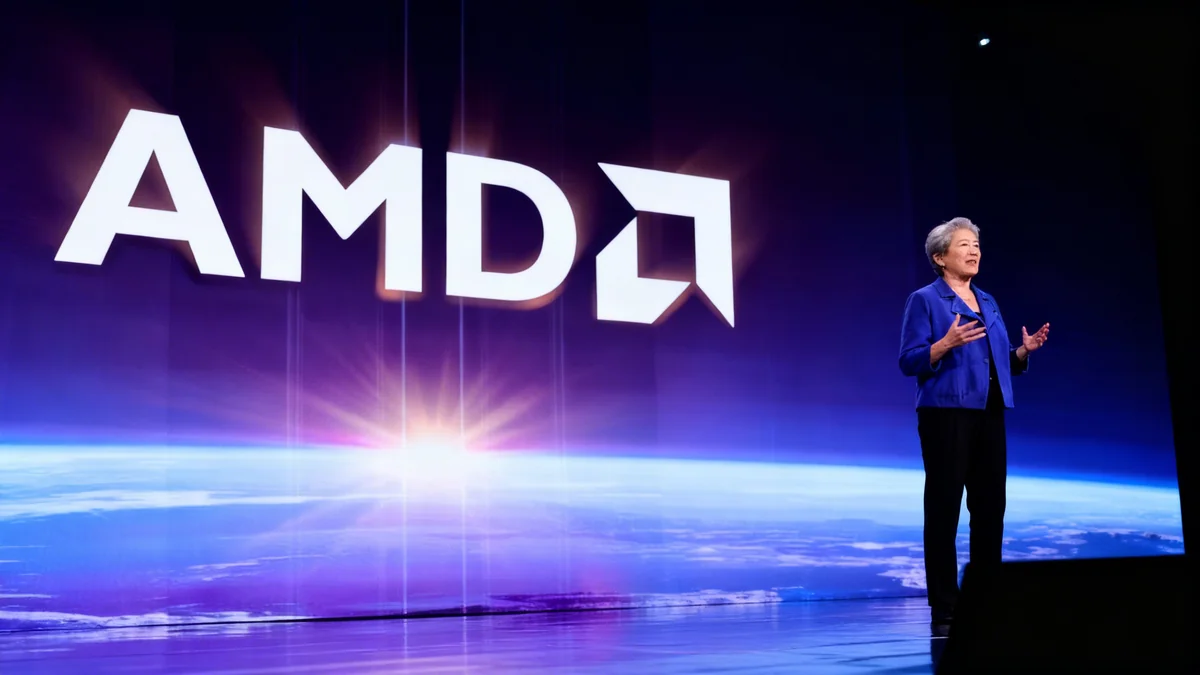Shareholders at Core Scientific have voted to turn down a $9 billion all-stock acquisition offer from AI infrastructure provider CoreWeave. The decision, influenced by a key investor, signals a strong belief that Core Scientific can achieve greater value on its own amidst a rapidly expanding market for artificial intelligence infrastructure.
The rejection sets the stage for Core Scientific to pursue an independent strategy, betting on its own transformation from a crypto mining operator to a major player in the high-demand AI data center space. Following the vote, the company's stock value increased, reflecting market support for its standalone potential.
Key Takeaways
- Core Scientific shareholders formally rejected a $9 billion all-stock buyout proposal from CoreWeave.
- The decision was heavily influenced by major shareholder Sina Toussi of Two Seas Capital, who argued the offer undervalued the company.
- Core Scientific, which emerged from bankruptcy in January 2024, is now focused on leveraging its infrastructure for AI workloads.
- Following the rejection, CoreWeave immediately acquired Marimo, an open-source software company, signaling its continued aggressive growth strategy.
Details of the Rejected Acquisition
The proposed deal would have seen CoreWeave acquire its partner and competitor in an all-stock transaction valued at approximately $9 billion at the time of the offer. The proposal represented a premium over Core Scientific’s share price, an appealing offer for a company that had only recently emerged from bankruptcy proceedings in January 2024.
However, the company's largest shareholder, Sina Toussi of Two Seas Capital, issued a public letter urging others to vote against the merger. Two Seas Capital specializes in post-bankruptcy companies, and Toussi’s recommendation carried significant weight with fellow investors.
In his opposition letter, Toussi pointed to the soaring valuations of other companies in the AI infrastructure sector. He argued that the offer, which equated to about $16.40 per share, did not adequately reflect Core Scientific's future growth potential in the current market.
“Since the transaction was announced in July, investment in AI infrastructure has accelerated, driving equity valuations of Core Scientific’s peers to ever-greater heights,” Toussi wrote. “Why would anyone vote for a transaction worth a mere $16.40 per share?”
Following the shareholder vote on Thursday, CoreWeave withdrew its offer and walked away from the deal.
A Bet on Independent AI Growth
The rejection is a significant vote of confidence in Core Scientific's ability to navigate the AI boom independently. The company's leadership and major investors believe it can replicate the success of companies like CoreWeave, which has seen its own valuation skyrocket.
From Crypto Mining to AI Powerhouses
Both Core Scientific and CoreWeave began as cryptocurrency mining companies, building large-scale data centers to support blockchain operations. While Core Scientific continues its mining operations, CoreWeave, with significant backing from investor and partner Nvidia, successfully pivoted its business to focus entirely on providing high-performance computing for AI workloads. This transition has been incredibly lucrative, with CoreWeave's market capitalization growing from $14 billion to $66 billion.
Investors in Core Scientific are betting that their company can make a similar, if not parallel, transition. Despite the failed acquisition, the two companies remain linked through a substantial business agreement. CoreWeave has a 12-year, $10 billion contract to use Core Scientific's facilities to host its AI services, providing a stable revenue stream for Core Scientific as it builds out its own AI offerings.
Market Reacts with Optimism
Investors reacted positively to the news that the acquisition was rejected. Core Scientific’s stock rose following the announcement, pushing its market capitalization to $6.6 billion. This suggests that Wall Street agrees with Sina Toussi's assessment that the company may be worth more on its own than it would have been under CoreWeave's ownership.
Valuation Snapshot
- CoreWeave's Offer: Valued at approximately $9 billion.
- Toussi's Valuation Argument: Believed the offer of $16.40 per share was too low.
- Core Scientific's Current Market Cap: Rose to $6.6 billion after the deal was rejected.
- CoreWeave's Market Cap: Has surged to approximately $66 billion.
The decision is also being viewed by some analysts as another indicator of the intense investor enthusiasm, sometimes described as a bubble, surrounding any company connected to AI infrastructure. The willingness to turn down a multi-billion dollar premium suggests expectations for future growth in the sector are exceptionally high.
CoreWeave Moves On Quickly
CoreWeave did not wait long to make its next strategic move. On the same day the Core Scientific deal fell through, the company announced it had acquired Marimo, a startup that has developed an open-source alternative to the popular Jupyter Notebooks development tool.
While the financial terms were not disclosed, the acquisition is a strategic step for CoreWeave. Marimo's tools are used by developers for interactive data analysis and building AI applications. By acquiring Marimo, CoreWeave is moving up the value chain from simply providing the raw computing power for AI to also offering the software tools that developers use to build on its platform.
This pivot shows CoreWeave's ambition to become a more integrated AI development ecosystem, a strategy that will likely see it continue its aggressive acquisition streak as it uses its high-value stock to purchase key technologies and talent.





